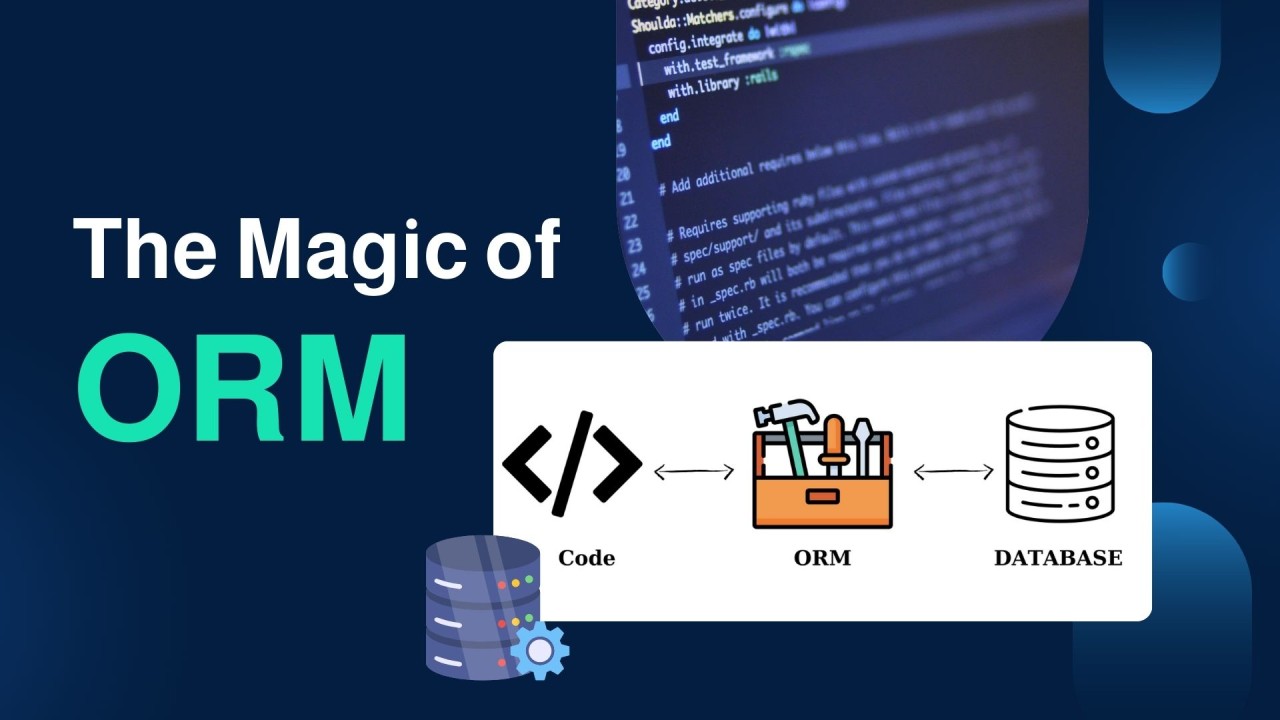
The Magic of ORM: How It Streamlines Database Interactions for Developers
In the world of software development, managing the interaction between an application and its database is a critical yet often complex task. This is where Object-Relational Mapping (ORM) comes into play, revolutionizing the way developers work with databases. But what exactly is ORM, and why is it considered magical by many developers? Let’s dive in.
What is ORM?
Object-Relational Mapping (ORM) is a technique that allows developers to interact with a database using the programming language’s native syntax, rather than writing complex SQL queries. Essentially, ORM acts as a bridge between object-oriented programming languages like Python, Java, or PHP and relational databases like MySQL, PostgreSQL, or SQLite.
By using ORM, developers can represent database tables as classes, rows as objects, and columns as attributes. This abstraction layer simplifies data manipulation and enhances productivity.
How Does ORM Work?
The basic workflow of ORM can be summarized in the following steps:
Mapping Classes to Tables:
ORM frameworks map database tables to classes in the programming language. For example, a User table in the database becomes a User class in the application.
Object Manipulation:
Developers manipulate objects directly in the code. For instance, creating a new user record involves instantiating a User object and saving it, rather than writing an INSERT SQL query.
Query Abstraction:
ORM allows developers to perform database operations like SELECT, UPDATE, and DELETE through method calls, without writing SQL. For example:
# Fetching a user record
user = User.query.filter_by(email='[email protected]').first()
Synchronization:
The ORM framework translates object-oriented code into SQL statements and executes them on the database. Similarly, it converts database results back into objects for the application.
Key Benefits of Using ORM
Simplicity:
ORM eliminates the need to write raw SQL, making the codebase cleaner and more readable. Developers work with familiar programming constructs rather than complex queries.
Reduced Boilerplate Code:
Common database operations like CRUD (Create, Read, Update, Delete) are streamlined with ORM, reducing repetitive code.
Improved Productivity:
Developers can focus on application logic rather than database details, speeding up development cycles.
Database Independence:
Many ORM frameworks support multiple databases. Switching from MySQL to PostgreSQL or SQLite often requires minimal changes.
Enhanced Security:
ORM frameworks mitigate risks like SQL injection by parameterizing queries under the hood.
Popular ORM Frameworks
Several ORM frameworks are widely used across different programming languages:
Each framework comes with its own set of features, but all share the goal of simplifying database interactions.
Challenges and Limitations of ORM
While ORM offers numerous advantages, it is not without its challenges:
Performance Overhead:
The abstraction layer can sometimes lead to less efficient queries compared to hand-written SQL.
Learning Curve:
Understanding how an ORM framework maps objects to tables and optimizes queries requires time and experience.
Complex Queries:
Writing very specific or complex queries might still require raw SQL.
Despite these limitations, ORM remains a powerful tool for most use cases, especially in projects where development speed and maintainability are priorities.
Conclusion
The "magic" of ORM lies in its ability to streamline database interactions, allowing developers to work efficiently with less complexity. By abstracting the intricacies of SQL and database management, ORM frameworks empower developers to focus on building robust applications.
Whether you're a seasoned developer or just starting out, incorporating ORM into your toolkit can significantly enhance your productivity and simplify your workflow. The magic of ORM truly transforms how we think about and interact with databases.
At Shiv Technolabs , we specialize in leveraging cutting-edge technologies, including ORM frameworks, to streamline database interactions and deliver scalable, high-performance applications. Whether you're building a simple website or a complex enterprise solution, our expert team ensures seamless integration between your application and database, saving you time and effort. Partner with Shiv Technolabs today ?to unlock the full potential of ORM and revolutionize your development process!
?